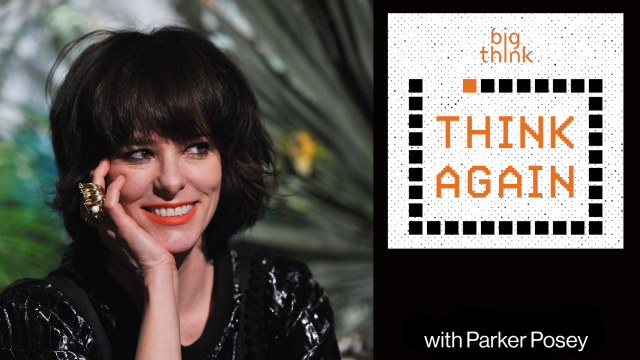Don’t Buy into the Backlash — the Science on Meditation Is Clear

One flawed study can’t diminish the benefits of meditation in the workplace.
To everything there is a season. And to every cultural trend there is a backlash. And now the backlashhas come for meditation. Once confined to the lifestyle or health pages, you’re now as likely to read about meditation in the business, sports or entertainment news. And just last week, there was news that the app Calm hit a valuation of $250 million, amid what TechCrunch called “an explosion of interest in Mindfulness apps.” So it was no real surprise when we saw the New York Times opinion piece last week entitled “Hey Boss, You Don’t Want Your Employees to Meditate.”
But the problem is that meditation isn’t just the latest fad to be fed into the cultural what’s-in-what’s-out machine. It’s a matter of public health. And the problem with this piece is — well, actually, there are many!
The central claim by theauthors, Kathleen D. Vohs, professor at the University of Minnesota’s Carlson School of Management, and Andrew C. Hafenbrack, assistant professor at the Católica-Lisbon School of Business and Economics, isthat, based on their study, meditation diminishes motivation and thus “might seem counterproductive in a workplace setting.”
But getting to that conclusion, and justifying the backlash headline, required the authors to define virtually all the terms of the study, and in fact the study itself, as narrowly as possible. “A central technique of mindfulness meditation,” the authors assert, “is to accept things as they are.” In fact, what mindfulness does is empower you not to react emotionally, unthinkingly, or impulsively to things as they are. Acceptance does not mean resignation. What it means is summed up perfectly in the serenity prayer: “God grant me the serenity to accept the things I cannot change; courage to change the things I can; and wisdom to know the difference.” And as Mark Williams, psychology professor at Oxford, wrote, “mindfulness cultivates ourability to do things knowing that we’re doing them.”
Then the authors assert that motivation “implies some degree of discontentment with the present, which seems at odds with a psychological exercise that instills equanimity and a sense of calm.” But people are motivated all the time by more than discontentment — by love, by gratitude, by patriotism, by dreams of new products or new planets. With both mindfulness and motivation defined so narrowly, it’s not much of a stretch for the authors to set up a study that finds, as they write, “tension” between the two.
One of the biggest problems with the far reaching conclusions is the scope of the study itself. To test the effects of meditation, the authors had participants listen to a single 8 or 15-minute mindfulness meditation recording online. We do not know if people were lying down or washing dishes as they were listening. Seriously? That’s not nearly enough time to justify such sweeping conclusions. The benefits of meditation are much more obvious after several weeks of practice. That’s why so many of the studies that have proven those benefits are based on programs of eight weeks or even longer.
And those studies have been clear, unambiguous and nearly universal in showing a host of benefits, all of which are valuable in the workplace. One of us (RJD) has conducted some of the first serious neuroscientific research on meditation and the first randomized controlled trial of Mindfulness-based Stress Reduction.In the recent book Davidson wrote with Daniel Goleman entitled Altered Traits, theyexplain that the point of meditation is the enduring, trait-like changes that come with extended practice. The kind of one-time practice studied by Hafenbrack and Vohs does not produce any enduring change and should not be confused with the changes from mindfulness meditation thatscientists have been documenting for decades. In theirnew book, Goleman and Davidson have sifted through the ~6,000 scientific articles on meditation and summarized the very best science in this area and find that meditation can indeed improve task performance in many domains, including those requiring focused attention and some types of memory. Meditation also improves emotional regulation which has secondary benefits on many other tasks.
Studies have also found that meditation can improve focus, lower stress, improve emotional regulation, help us get back to a task at hand after being distracted, and enhance compassion and creativity — all qualities incredibly important to the workplace. And in 2016, a review co-authored by Christopher Lyddy at Case Western Reserve and Darren Good at Pepperdine looked at 4,000 studies on mindfulness. What the authors found was that mindfulness improved performance levels across a broad range of categories. And they also addressed the question of motivation. “Mindfulness may support goal pursuit through improved attentional and motivational properties,” they write. “Although mindfulness involves non-striving, it should not be confused with passivity. Indeed, autonomous motivation—that is, the drive to pursue activities perceived as important, valued, or enjoyable—appears to be higher among mindful individuals.” Adds Lyddy, “When you are mindful, you can have a greater consciousness in the present. . .That’s vital for any executive or manager, who, at any given moment, may be barraged with various problems that call for decisions under stress.”
And that’s why so many companies are availing themselves of this powerful tool. At Aetna, a meditation program for employees offered by CEO Mark Bertolini, himself a practitioner, has been credited with improving productivity by 62 minutes per employee per week, which Aetna values at $3,000 per employee per year. It’s why Bridgewater Associates founder Ray Dalio encourages the practice among his employees. “It’s the greatest gift I could give anyone,” he says, “it brings about equanimity, creativity and peace.” He also considers meditation to be the “single most important reason” for his own success in building the biggest hedge fund in the world. It’s why Salesforce founder Marc Benioff installed meditation rooms all over the company’s new offices. It’s why Peter Cooper, founder of Cooper Investors, relies on the practice for his decision-making. “Being an investor requires the distillation of large volumes of information into a few relevant insights,” he says, “Meditation has helped me discard interesting but unnecessary information and focus on the few things that make a difference to long run investment performance.”
—
Reprinted with permission ofThrive Global. Read theoriginal article.





